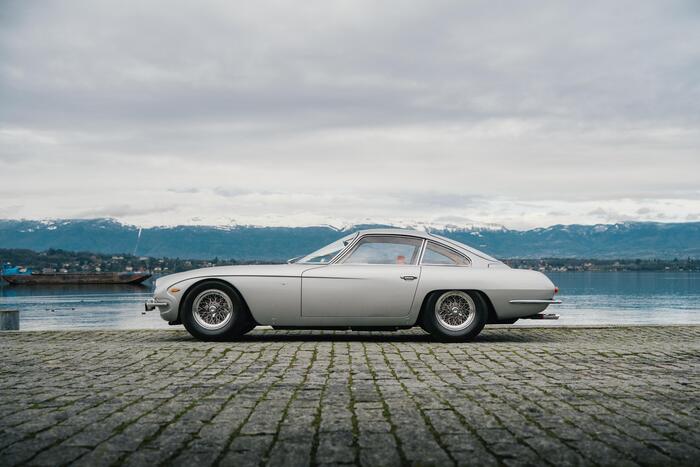06 March, 14:16
Foreground
>> ANSA / One year after the lockdown: the songs from the balcony, the empty streets
Photo story
© ANSA
WATCH THE PHOTOSTORY Photo
Close
© ANSA
Close
Coronavirus in Italy © ANSA
Close
Coronavirus in Italy © ANSA
Close
Coronavirus in Italy © ANSA
Close
>> ANSA / One year after the lockdown: the songs from the balcony, the empty streets / SPECIAL © ANSA
Close
ITALY PANDEMIC CORONAVIRUS COVID-19 © ANSA
Close
Coronavirus: concert in Tor Bella Monaca (Rome) © ANSA
Close
Antivirus rules: limits to movements and stop entertainment © ANSA
Close
Coronavirus in Italy © ANSA
Close
ITALY HEALTH CORONAVIRUS COVID 19 © ANSA
Close
Coronavirus in Italy © ANSA
Close
>> ANSA / One year after the lockdown: the songs from the balcony, the empty streets / SPECIAL © ANSA
Close
>> ANSA / One year after the lockdown: the songs from the balcony, the empty streets / SPECIAL © ANSA
(ANSA) - ROME, MARCH 06 - ANSA) - ROME, MARCH 06 - Fear, responsibility and hope.
But also loneliness and uncertainty.
The empty streets and the lines at the supermarkets, the resistance from the windows with singing and applause and the banners with optimistic rainbows on the balconies.
A year ago, Italy plunged into one of the most tragic moments since the post-war period, discovering for the first time that English term, lockdown, which emptied lives and cities.
The symbolic image of those months will always remain the sad procession of army trucks with loads dibbare along the streets of a dark and wounded Bergamo.
Just ten days had passed since the then Prime Minister Giuseppe Conte announced the so-called #iorestoacasa decree.
It was the beginning of silence.
'Outside it was spring', as Gabriele Salvatores has wisely shown in the documentary of the same name, and the streets of 'noisy' Italy suddenly found themselves deserted.
In the silence, noises were born and discovered that drew another geography and humanity: the roar of the fountains, more distinct than the seagulls or other birds, and the sliding on the asphalt of the many bicycles of the riders who, with restaurants closed to the public, guaranteed and still guarantee a minimum of subsistence for these activities.
The villages seemed abandoned, the metropolises, on the other hand, showed post-apocalyptic features consigned to an endless silence and deprived of human trace if not the patrols of the police or the army.
The fauna, in some cases, regained possession of the spaces 'occupied' by humans.
And so it was not uncommon for a bear to descend into town or for geese and frogs to walk quietly in single file along what had once been highly trafficked streets.
"Everything will be fine", we read on the balconies where at sunset the Italians found themselves to launch a musical message of hope.
First the Mameli anthem, then the most symbolic pieces of the country's music.
Lenote by Ennio Morricone from Jacopo's guitar, in piazzaNavona in Rome, were the symbol of musical resilience.
The country in the most tragic hour is rediscovered resistant, united, solidarity.
There are those, for example, who improvised voluntary services to deliver groceries to older and more lonely people.
Never as at the time of the lockdown did cities without men discover a human face.
The boys, banned from school and engaged in distance learning, relied on technology to make up for the lack of contact with their friends.
Birthdays began to be celebrated strictly by remote.
And also the degrees.
Adults discovered smartworking.
We lived and unfortunately died remotely.
Because in the hospitals and in the RSA, sealed due to the infection, many, too many elderly people endured the disease alone and died alone.
But we went on because we had to.
There are those who also organized impromptu tennis exchanges from one balcony to another to stay in training.
Those who improvised themselves as pizza chefs and bakers, so much so that flour and yeast are sold out, in the salons and bedrooms they set up impromptu training rooms, following online instructors or advice from friends and personal trainers.
The only escapes allowed: walks with the dog, some jogging and cycling.
Today, a year since then, Italy is facing new and decisive challenges.
The risk of ending up in lockdown again is more concrete than ever, thanks to the extreme speed of diffusion of the variants, especially among the youngest.
What is certain is that another Easter, after Christmas and New Year, will pass under restrictions.
The powerful image of Pope Francis' Urbi et Orbi alone in the immense Piazza San Pietro is still vivid in the memory of the Italians, as well as that of the President of the Republic, Sergio Mattarella, who on April 25 paid homage to the unknown soldier in a deserted Venice square.
A year of resistance.
And the war isn't over yet.
Even if now the decisive ally has arrived: the vaccine.
(HANDLE).
PD / S0B QBXB (ANSA).
Share
Suggest
Facebook
Twitter
Linkedin
-
Mail
Code to embed
Get the embed code
REPRODUCTION RESERVED © Copyright ANSA









